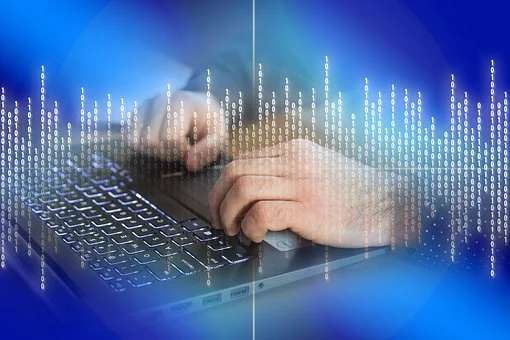There are plenty of ways to improve your online cyber security, including the usual recommendations of making unique, strong passwords. However, when it comes to precious and confidential data, further safeguards are needed.

VPNs, firewalls, and anti-virus software can all help protect a computer and the network they are on. But, sometimes sensitive data needs to be shared. When this happens, the tightest controls need to be brought in.
Scientific data can be precious, and it often needs to be shared with other parties, perhaps in other states or even different continents. There is a risk then of someone eavesdropping on the file transfer and data being hijacked.
How then can you secure your scientific data and make sure only those authorized get to view it?
Why is securing scientific data so important?
Cybercrime is on the rise, and while many of the threats people face involve low-level phishing emails and other scams, some very organized hackers are working today.
These organized crime gangs work at gaining access to valuable data to sell online. This can involve data breaches to acquire data, including passwords and email addresses, or it could involve industrial espionage or worse.
In 2018, the Wall Street Journal reported on a huge cyber hack where nine Iranians were charged with stealing research, intellectual property, and other data. This information was stolen from universities, schools, private companies, the United Nations, and US government agencies.
Without proper protection, scientific data that has cost thousands of man-hours, worth millions of dollars, can be stolen over the internet without anyone realizing it has happened.
How can you secure your scientific data?
The problem lies when data is put online. An isolated network without access to the internet should be perfectly safe. There is no possibility of attack, and therefore all the research involved is secure.
In the real world, though, data needs to be shared and stored somewhere. Typically today, this involves digital files and the internet.
Storage options involve offline backups, such as hard drives or private servers accessed through a network. Many businesses choose cloud storage options for financial and logistical reasons.
Virtual data rooms are another option for securing science research and data. One example is Firmex’s Data Room which can be used for storing and sharing sensitive documents safely. Virtual data rooms are designed to hold confidential material such as scientific data.
Why do you need to share science data?
It would be easy to keep this data safe if there was no need to be shared. But, there are many reasons for sharing sensitive data with other parties.
Data will need to be shared in the event of an M&A transaction or during partnering. Sometimes data needs to be shared so that advances can be made.
Companies can use risk management to keep their businesses secure online, and virtual data rooms are solutions to lower risk. VDRs help when it comes to sharing science data too.
Here are some of the reasons that science data needs to be shared:
- Initial Public Offerings
- Fundraising
- Clinical Trials
- IP licensing
Can virtual data rooms protect and share science data?
Laboratories and businesses involved in areas involving medical, biotech, and science, need to share data. This may be due to potential mergers, or it could be to help raise funds.
A virtual data room provides a secure storage area protected with international standard certification. All the data that is uploaded to a VDR is secured with only authorized individuals allowed access.
The VDR allows sharing of documents with access controlled by you, the owner. This doesn’t only allow sharing of documents. It also helps to improve communication securely and keep IP safe.
If the law can protect intellectual property, why is a VDR needed?
The US Department of State enforces the laws surrounding intellectual property. However, this means little if cybercriminals manage to access data that allows them to make counterfeits.
It is not uncommon for generic prescription drugs to be manufactured abroad or other nations to steal intellectual property to produce counterfeit versions of products.
Instead of relying on laws with limited powers in other countries, secure science data with a VDR. If hackers are unable to access the data in the first place, then there is less risk of IP theft.
Also, by watermarking the documents, restricting access to only specific individuals, and using real-time reporting, you can control and monitor all of your data.
Summary
During an M&A or an IPO, very secretive documents will need to be revealed to the other relevant parties. This can mean showing confidential scientific data to a potential buyer and their team of lawyers and experts.
To keep the data confidential, you will need a way to store it securely, and at the same time, allow access. A wide range of industries uses virtual data rooms to do just this.

